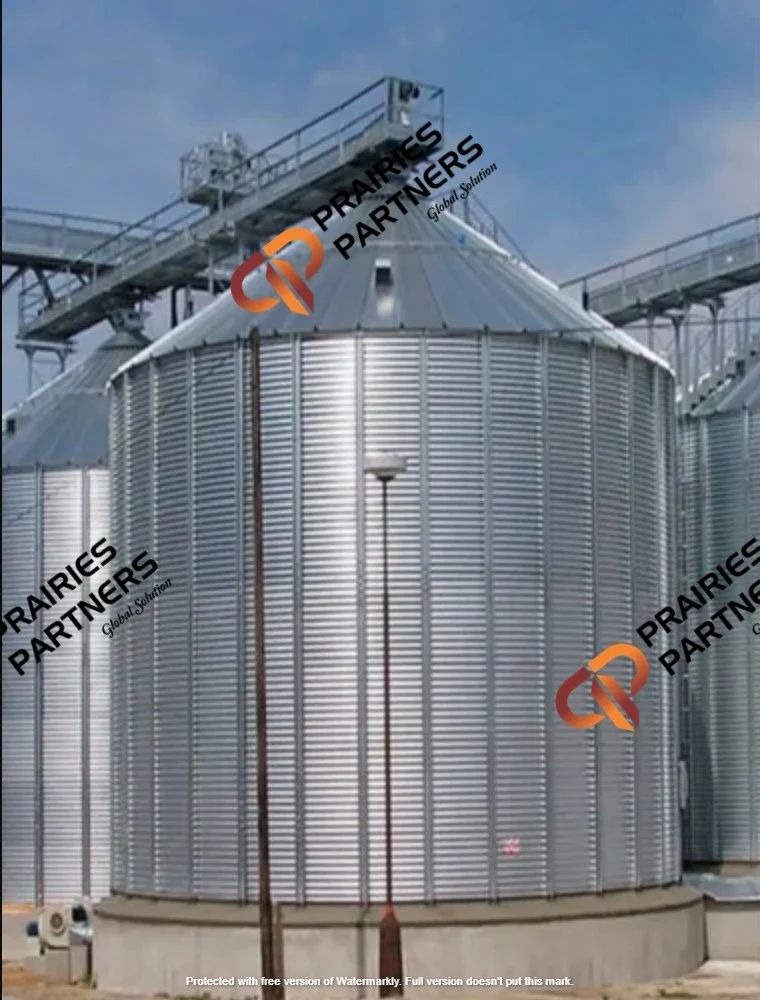Grain Storage Container Manufacturers
A grain storage container refers to a specialized vessel or unit designed for the temporary or long-term storage of grains. These containers are essential in agriculture and food processing industries to maintain the quality of grains and manage inventory efficiently. Here’s an overview of grain storage containers, their types, features, and considerations:

Types of Grain Storage Containers:
Silos:
- Types: Silos come in various forms such as flat bottom silos, hopper bottom silos, and even bag silos.
- Material: Typically made of galvanized steel, concrete, or occasionally fiberglass.
- Capacity: Ranges from small-scale silos for farm use to large industrial silos for commercial grain storage.
- Features: Designed for durability, protection against environmental factors, and efficient grain management.
Grain Bins:
- Types: Can be stationary bins or portable bins.
- Material: Usually made of galvanized steel or sometimes polyethylene.
- Capacity: Smaller than silos, suitable for on-farm storage or temporary storage needs.
- Features: Equipped with hatches, access doors, and sometimes ventilation systems for grain preservation.
Shipping Containers:
- Types: Repurposed standard shipping containers.
- Material: Steel.
- Capacity: Can vary widely based on the container size (e.g., 20-foot or 40-foot containers).
- Features: Converted for grain storage with modifications such as insulation, ventilation, and sealing to maintain grain quality.
Bulk Bags (FIBC – Flexible Intermediate Bulk Containers):
- Types: Large bags made of woven polypropylene.
- Capacity: Can hold several hundred to several thousand kilograms of grain.
- Features: Used for temporary or short-term storage, easy to transport and handle, with options for UV protection and moisture resistance.
Key Features and Considerations:
Material and Construction:
- Depending on the type of container, materials range from steel, concrete, polyethylene, to woven polypropylene. Each material offers different levels of durability, weather resistance, and suitability for specific storage conditions.
Capacity and Size:
- Containers vary widely in size and capacity, catering to different scales of grain storage operations—from small-scale farm use to large industrial applications.
Preservation of Grain Quality:
- Containers are designed with features like ventilation systems, airtight seals, and protection against pests to ensure optimal storage conditions and prevent spoilage.
Accessibility and Handling:
- They include features such as access doors, hatches, and sometimes integrated loading and unloading systems to facilitate efficient grain handling and management.
Environmental Considerations:
- Compliance with environmental regulations, including measures to minimize dust emissions, prevent spillage, and manage waste materials generated during grain storage operations.
Integration with Grain Handling Systems:
- Many containers are designed to integrate seamlessly with grain handling equipment like conveyors, augers, and drying systems, enhancing operational efficiency and reducing manual labor.
Our Products
Menu
